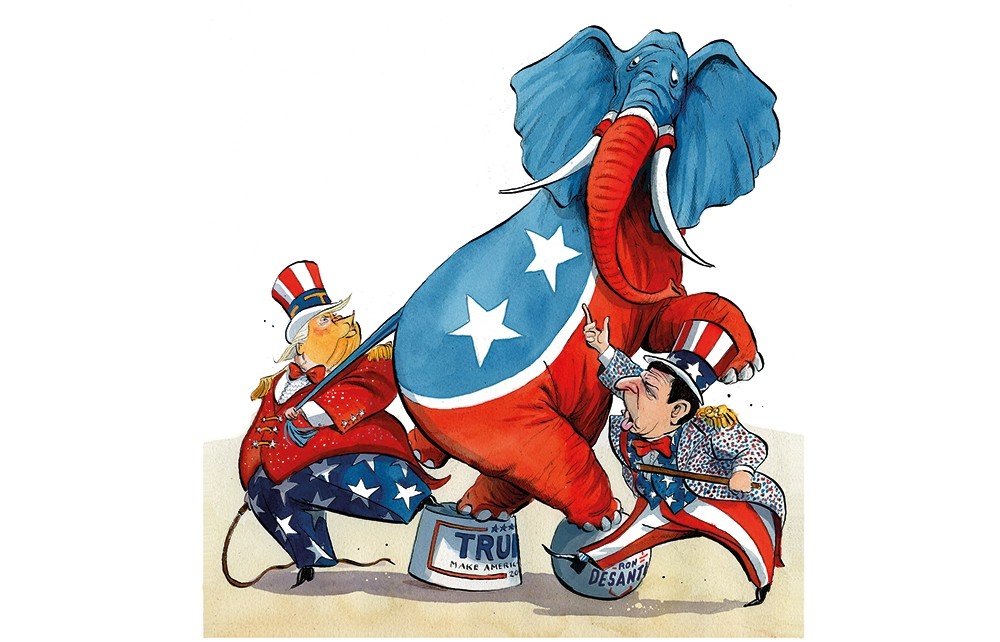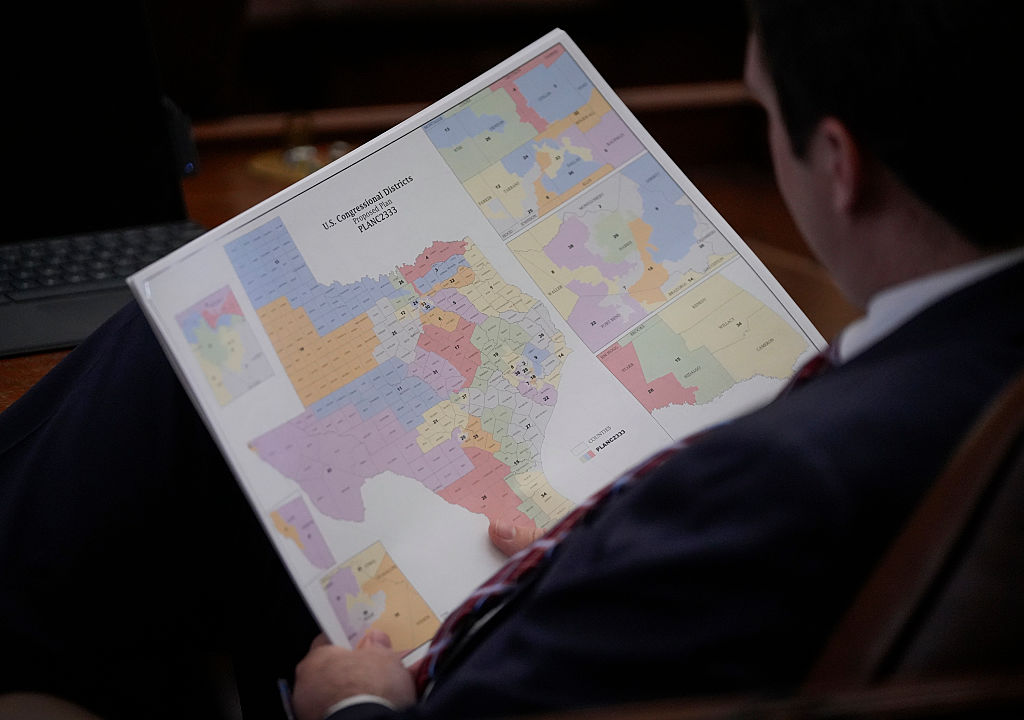Maybe Niccolò Machiavelli was not the first political consultant, but he remains one of the best. Ron DeSantis might solicit his advice before deciding whether a 2024 campaign for the White House is wise.
DeSantis could start with the penultimate chapter of The Prince, “What Fortune can do in human affairs, and how it can be resisted,” which is famous for its imagery. Machiavelli first likens fortune to a raging river, whose flood cannot be met head on but whose fury can be dissipated by dams and dykes built in advance. Later he says Fortune is a woman who yields to a young man who comes on strong, even roughly.
The lesson for a forty-four-year-old DeSantis is obvious: seize the moment. She’s yours for the taking — if you’re bold. The fact that his rivals for Fortune’s favor are a seventy-six-year-old Donald Trump and an eighty-year-old Joe Biden only drives home this conclusion.
But Machiavelli is both shrewd and learned. He knew that “fortune favors the bold” was a Latin maxim, one that the poet Virgil puts in the mouth of the Italian warlord Turnus shortly before the hero Aeneas kills him. Such ironies led Jean-Jacques Rousseau, among others, to declare The Prince not a handbook for princes but a trick to bring about their self-destruction. Tread carefully, governor.
I’m the same age as DeSantis but a cautious spirit by nature. I think his cards are stronger if he waits until 2028. Beating Trump for the GOP nomination would be difficult, and even if DeSantis were to succeed, a vengeful Trump could be expected to do everything in his power to sabotage the Republican nominee in November.
Would Trump run third-party? He wouldn’t have to: endorsing another third-party candidate or simply calling on his supporters to write him in or not vote at all would be a potentially fatal blow to Republican prospects.
And Trump will be the Republican nominee even if he loses the nomination — because Democrats and their friends in the media will paint anyone else as a new and Trumpier Trump. The nominee will be damned if he tries to repudiate Trump, damned if he doesn’t repudiate Trump.
A candidate with enough political virtù might succeed in appealing to Trump voters without being defined by the ex-president. Glenn Youngkin pulled off that feat in Virginia’s 2021 gubernatorial contest. But it will be harder in a national election.
Then there’s Biden. His approval numbers are lackluster at best and often downright lousy. But Republicans have underestimated him to their sorrow before, first in 2020 (when many didn’t think Biden could win the Democratic nomination, let alone the general election) and again last year.
Biden has two things going for him. The first is geography. The key battleground states in 2024 will almost certainly be the same as those in which Democrats prevailed in 2020 and 2022: Pennsylvania (where Biden has personal ties), Michigan, Wisconsin and Arizona. Trump won all four in 2016, thanks in part to his working-class economic messaging. But that’s Biden’s second strength: he is assiduous about using government power to enhance his electoral prospects, whether through industrial policy for the Rust Belt or loan forgiveness for students.
Unlike next year, 2028 would offer a well-prepared DeSantis a clear shot: no White House incumbent, since either Biden or Trump will be term-limited (assuming neither has died in office), and no front-runner as tough as Trump for the nomination.
Even if Trump wins next year and his running mate seeks the GOP nod in ’28, DeSantis would be well-positioned. His term as governor ends in January 2027, and if his virtù has translated into eight years of governing success, his record will outclass any foreseeable rival’s.
When I make these arguments to smart friends who want DeSantis to run now, they always tell me the same thing: this is his moment and anything can happen between now and 2028. That’s true — but it’s an appeal to Fortune, not virtù. It amounts to saying that luck, not skill, will determine DeSantis’s fate.
For Machiavelli, Fortune is everything outside of man’s power. Virtù is man’s power. The terms are complementary and compre- hensive. And while Machiavelli understands Fortune very well, his confidence ultimately reposes in virtù. Any flood can be controlled by the man who is prepared. Youthful initi- ative is indispensable, but only as part of a strategic design. And DeSantis at forty-nine would still be younger than most presidents.
The Prince is infamous for teaching that it is better to be feared than loved. Yet both are good, says Machiavelli. What’s bad is to be hated or held in contempt. Trump destroys his rivals by making them contemptible in voters’ eyes. Trump himself, of course, is hated, contemned, feared and loved. But Trump, if he’s not Fortune personified, is inseparable from her. His virtù consists entirely in his lovemaking with fate. He is Byronic, not Machiavellian.
DeSantis may be the younger man; he’s also the more prudent. He should not get into games of chance with the former president. His path to the presidency lies in channeling the floods unleashed by Trump, not diving into them. If he plans and builds, he will beat both luck and the lesser virtù of other politicians from his generation. He is, in that limited sense, more like Biden than like Trump.
But Fortune captivates a young man. And just as young lovers don’t want to wait, what forty-something presidential hopeful can say no to his moment?
This article was originally published in The Spectator’s May 2023 World edition.

























